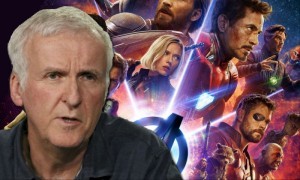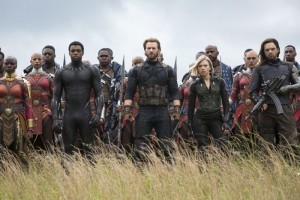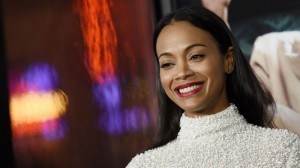Another day, another Hollywood director bashing comic book movies.
Earlier this year it was Jodie Foster comparing the genre to “fracking,” and before that Roland Emmerich called them “silly,” but now James Cameron is the latest offender. In an interview with Indiewire, the director said he was hoping that audiences would develop “Avengers fatigue” in order to make room for new films.
“Not that I don’t love the movies,” Cameron said. “It’s just, come on guys, there are other stories to tell besides hyper-gonadal males without families doing death-defying things for two hours and wrecking cities in the process. It’s like, oy!”
(James Cameron bashing comic book movies is tiring)
It seems rather ironic that Cameron is making this point; the director has plans to release four Avatar sequels and has confirmed that a sixth Terminator movie is in the works. Maybe if the director, who hasn’t released a movie in nine years, spent more time making movies than giving interviews we’d be seeing some newer stories on screen, but I digress.
His attitude, like many other Hollywood performers and filmmakers, is far more tiring now than any number of comic book movies put out because it undermines the brilliant storytelling in these films of recent years, which are only the tip of the iceberg of what has been translated from the page to the screen.
The expansive comic book universe, from Marvel to DC and beyond, means there are so many characters and narratives that have yet to be given the cinematic treatment and some of the more niche stories would offer original storytelling. We’ve seen Millarworld comics like Kick-Ass and Kingsman brought to life, Atomic Blonde is getting a sequel, Ridley Scott himself is “knee-deep” in adapting Queen & Country for the big screen and even Cameron has been working on an Alita: Battle Angel movie since Fox acquired the rights to the Manga comic in 2000.
(Danai Gurira, Chadwick Boseman, Chris Evans, Scarlet Johansson and Sebastian Stan in a scene from Avengers: Infinity War)
There is obviously a global appetite for these types of movies and to continually bash them is to also undermine the audiences who choose to spend their money on seeing them on the big screen. Directors are more than aware of the concept of supply and demand and clearly, the likes of Disney, Fox, Sony and Warner Bros. are going to continue to supply comic book movies while there is a global, lucrative demand for them. Surely that’s the reason why Cameron is planning to turn Avatar into a five-movie franchise and continue the Terminator one too, otherwise, *he* would making the original stories he thinks comic book movies should be making room for.
His comment about “hyper-gonadal males” certainly feels outdated too. Maybe that was the case for the comic book movies of the early 21st century, but now we’re seeing that the genre has adapted and evolved, just like horror, sci-fi and other film genres have too since their first iterations.
Logan, Wonder Woman, Spider-Man: Homecoming, Deadpool, Thor: Ragnarok and Black Panther are films that are both narratively and visually stunning and have taken the comic book movie in a far more progressive and explorative stylistic direction.
The “No Man’s Land” scene in Wonder Woman is an emotive work of art while the score in Thor: Ragnarok is an electrifying soundtrack to the brilliantly choreographed action sequences. Black Panther brought a layer of Afrofuturism to the genre that lifted its politically-charged narrative to ingenious heights as did Logan, which wove Western sensibilities into its superhero make-up and earned an Oscar nomination for its nuanced efforts.
These movies have also started to open the door for more diversity in film. Logan’s Laura (AKA X23) is a Latina superhero who is set to star in her own solo movie. Spider-Man: Homecoming and Thor: Ragnarok cast women of colour – Laura Harries as Liz, Zendaya as MJ and Tessa Thompson as Valkyrie – in originally white roles. Black Panther featured a nearly entirely black cast, with a predominantly black production crew led by black director Ryan Coogler, and has overtaken Titanic as the third highest grossing movie at the North American box office.
Is this why you’re sore, James?
There’s also a slate of new comic book movies to come that boast not just diverse leads but a diverse range of people behind the camera. Captain Marvel, Aquaman, Birds of Prey, New Gods, Batgirl, and Silver & Black are a number of films that will see female or non-white (or both) filmmakers writing and/or directing them, therefore, opening up the door for more representative stories to be told.
The only fatigue I’m feeling stems from the bashing of the genre that has been entertaining and uplifting cinema-goers for decades. Comic book movie stars are feeling it too. “I’ve been in rooms with people in this industry who are great at what they do, but they’re absolutely elitist and they look down at movies like the Marvel films or actors like myself. They think we’re selling out in some way,” Zoe Saldana, who plays Guardians of the Galaxy character Gamora, said.
(Zoe Saldana criticises ‘elitist’ actors who look down on Marvel movies)
“Every time they speak I feel so disappointed in them because whenever you see pictures of people in this industry who donate their time to children in need, it’s these actors that live in the world that you feel is selling out.”
Her co-star Chris Pratt recently emphasized this point. “The times I feel the very best in my soul is when I can use the fact I’m a superhero and I can go and cheer up some sick kids,” he said. “I can show up in a young innocent kid’s life who may be terminally ill, I can help raise money for a great cause, I think the platform and the opportunity to use the powers that superheroes have over the imaginations of kids has been the most rewarding for me.”
Stories that can engage both young and adult audiences should never be sniffed at, or ones that can offer a brilliant comment about the world. Comic book films have broached political, social and cultural issues that have its viewers asking questions about the world that we live in. This sparking global debate and conversation is a brilliant consequence of superhero movies that will continue as long as people keep buying tickets to seeing the movie.
So instead of hoping that people will get tired of seeing comic book movies maybe directors like James Cameron should be working harder to make films that can rival them for excitement and inspiring storytelling.
Surely that’s a win-win for everyone.
Source: yahoo
Ask me anything
Explore related questions







